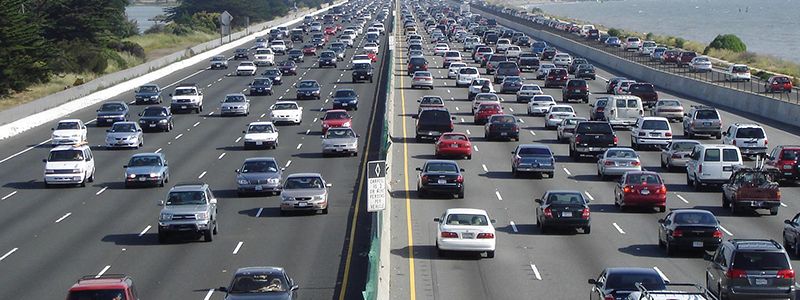
A New Draft Regulation for Turkish Motor Vehicles Sector
Turkish Competition Authority has published draft Block Exemption Communiqué and the Guidelines in Motor Vehicle Sector on 02.03.2016.
The problems encountered during the application of the Block Exemption Communiqué on Vertical Agreements and Concerted Practices in the Motor Vehicle Sector No. 2005/4 (“Communiqué No. 2005/4”) brought about the necessity of the examination of the effects in the market and a sector inquiry was conducted by the Turkish Competition Authority. The findings of the sector inquiry revealed that the distribution market of motor vehicles is considerably competitive and the market has become more competitive during the validity period of Communiqué No. 2005/4. On the other hand, it is determined that the anti-competitive concerns in the after-sales market continue due to high profit margins and concentration level in such market. This basic findings has been used as a guide for the Draft Communiqué.
Fundamental differences between the Communiqué 2005/4 and the Draft Communiquécan be summarized as follows;
I. The Market Share Thresholds
Pursuant to the Communiqué No. 2005/4, the market share thresholds in order to benefit from block exemption are determined as 30% for the exclusive distribution system, 40% for the quantitative selective distribution system and there is no market share threshold for the qualitative distribution system in sales market and only one threshold is applicable for the after sales market, which is 30 %. On the other hand, in the Draft Communiqué only one market share threshold is accepted for exclusive and quantitative selective distribution systems and this market share threshold is 30% for both sales and after-sales markets.
II. General Conditions
Draft Communiqué does not include regulations related to (i) the right of the dealer or authorized repairer to sell his business and all the associated rights and obligations to another member of the brand network (ii) the obligation for the supplier and the buyer to state the reasons for terminating an agreement (iii) the right to arbitration in the event of a dispute relating to the agreement, (iv) the obligation to conclude agreements of limited duration for a minimum period and to require a period of notice in the event of non-renewal or termination of the agreement.
III. Multi-branding and Additional Sales Outlets
After the sector inquiry, Turkish Competition Authority announced that the multi-branding principle will be preserved in the new block exemption regime even for the sales market. This was an unexpected approach since Turkish Competition Authority closely follows the regulations of the European Commission. However, Draft Communiqué shows that Turkish Competition Authority left this approach considering the objections raised by the sector players and the new regulation will allow the supplier to prevent the dealers from opening additional sales outlets andto impose non-compete obligation on the dealer in the sales market provided that the duration of such obligation does not exceed 5 years. On the other hand, non-compete obligations imposed on the authorized repairers will not benefit from block exemption, in principle. However, it is possible to impose a non-compete obligation on the network members for a period of 5 year for independent chain repairers and spare parts distributors.
Moreover, the definition of the non-compete obligation is differentiated for sales and after-sales markets. In the sales market, non-compete obligation means any obligation imposed on the buyer directly or indirectly, aimed at purchasing, from the provider or another undertaking to be designated by the provider, more than 80% of the goods or services in the relevant market. On the other hand, in the after-sales market, the threshold remains unchanged as 30%.
IV. Access to the Technical Information
Communiqué No. 2005/4 regulates the obligation to provide to the independent repairers the same technical information, education and equipment with the authorized repairers. However, Draft Communiqué does not include such an obligation since there is another regulation which regulates the right to access of the independent repairers to supplier’s technical information. Although this right to access is not regulated under the Draft Communiqué, it is explicitly stated that the conflicts related to the access to the technical information can be assessed by the Board and may be regarded as a practice which may give rise to abuse of dominant position.
V. Maintenance and Repair Services Carried out During the Warranty Period but out of Warranty Scope
Pursuant to theDraft Communiqué, in case maintenance and/or repair services that are out of the warranty scope and afforded by the customer are carried out by the independent repairer during the warranty period and a defect arise in the vehicle during such period, any provision/obligation imposed by the supplier which cause exclusion of the vehicle from warranty without establishing a causal link between the maintenance-repair carried out by the independent repairer and the defect cannot benefit from block exemption.
VI. Matching Quality Spare Parts
Further to the sector inquiry, Turkish Competition Authority determined that the usage of the matching quality spare parts is very limited as the certification process of the matching quality spare parts is still problematic. Considering the obstacles in the certification process of the matching quality spare parts; Turkish Competition Authority referred to a specific circular issued by the Secretariat of Treasury.
VII. Conclusion
It is seen that the new Regulation brings significant changes in the sales market which will be in favour of the suppliers such as removal of the general conditions, multi-branding principle and freedom of the dealers to establish additional sales outlets. However, current rules and obligations are substantially preserved in the after-sales market. Although the Draft Communiqué and relevant guidelines have not entered into force yet, the sector players do not expect a major difference in the enacted regulations.